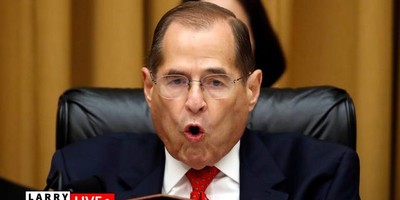Pretty soon Congress will face one of, if not the toughest votes of this legislative session – the decision on whether to raise our nation’s debt ceiling. It is perhaps the defining moment of nearly 87 new GOP freshmen, along with dozens others (including Democrats) who could lose their jobs come next November should they vote the wrong way.
Even now, analysts and staff are looking under every stone and in every congressional seat cushion to find savings. Even hundreds of millions of dollars could mean the difference of whether a program lives for another year or goes away.
In the span of about 24 hours, I think I have helped this government find close to $2 billion. Where? U.S. aid to Pakistan.
As details of the killing of Osama bin Laden emerge, what’s quickly becoming evident is the conspicuous culpability of the Pakistani government.
Look at the facts: Osama was living in what was essentially a military enclave in a town that housed Pakistani soldiers, both recruits and veterans of all walks. Further, the exact location was some 35 miles from the nation’s capital. Can you imagine one of a country’s alleged most wanted men living that close to the center of a government dedicated to finding him? He was essentially living in the Tyson’s Corner of Pakistan’s capital – Islamabad.
It’s no secret Pakistan wasn’t as eager to find Osama as the United States, but leaders did say repeatedly since 9/11 that they were committed to bringing the killer to justice. And every time the U.S. raised questions based on good intelligence that perhaps he was hiding on Pakistan’s side of the border, officials dismissed the idea.
A further indictment of this lack of willingness was the fact that no one informed the Pakistani government of the raid. If Pakistan was such a strong ally and partner in this manhunt, then why weren’t they told? Many U.S. intelligence officers believe and have said bluntly that Pakistan was either complicit in the hiding of Osama or were simply so incompetent they could offer the U.S. little in the way of intelligence. Further, military officers feared that if they warned Pakistan of the invasion, then they would have in turn notified Osama of the impending raid. Of course the intelligence process is imperfect at best and highly secretive. Our best partners are at times the most discrete ones -- Pakistan's true role may well never be known. One could conceive of an agreement in which Pakistani assistance did play a role, but due to their own complex domestic politics disclosure was not judged possible... we will most likely never know for sure.
Recommended
However, we must continue to ask is that what happened at Tora Bora in December 2001 when we hunted Osama in the mountains of Afghanistan? Were the Pakistanis passive in their assistance then as Osama clearly bounced back and forth across the Afghan-Pakistan border? It’s hard to say just how many opportunities the U.S. intelligence community had or how close they came in capturing Osama given these new revelations.
So why are we giving the country billions each year in assistance for fighting terrorism if Pakistan is so bad at it?
Chump change? I don’t think so. Since 9/11, we’ve given over $18 billion in U.S. aid to the country. For 2011, another $1.8 to $2 billion is earmarked for the country. And what do we have to show for it?
Earlier this year, the country held one of our CIA agents and only after a long negotiation agreed to turn him back over to the United States. Relations are strained. And now the country’s leaders are saying the United States overstepped its authority and violated the sovereignty of the nation of Pakistan.
I’m sorry, but if Pakistan were doing its job, we wouldn’t have to do it for them.
This is ridiculous. I’m all in favor of an ally aiding other allies, particularly in a fight as important as the one we’re waging now against terrorism.
But Pakistan isn’t living up to its end of the bargain. What has the country exactly been doing with this billions in aid? Have they directed the monies toward enhanced counter-terrorism efforts? Have they assisted American interests in securing peace in the region? Sending troops to Afghanistan or in Iraq, perhaps? It’s hard to say what sort of return the American taxpayer is getting on this investment.
However, we must also realize that over the course of our long and storied history the United States has at times had to accept less than ideal partners. In World War II Moscow was not a natural partner until Panzer Divisions advanced East. Though not an ideal partner a very real existential threat posed by an expanding Nazi regime forced a partnership. Pakistan is yet another imperfect and unlikely partner who by necessity we need at some level, just as they need us -- in fact our national security interests at some level may well be interwoven. We may not like the idea of aid to Pakistan, but a nuclear Pakistan must remain stable and aid may well be our only lasting hedge in this volatile part of the world. We must consider that this may well be a partnership that we can not afford to not have. Imperfect and surrounded by daunting challenges there are in fact few good answers and even fewer clear alternatives.
Although, you don’t need me to tell you how far $20 billion will go here stateside. The demands at home are only growing in quantity and complexity. These are all issues and questions Congress should and must tackle in the coming days.

























Join the conversation as a VIP Member